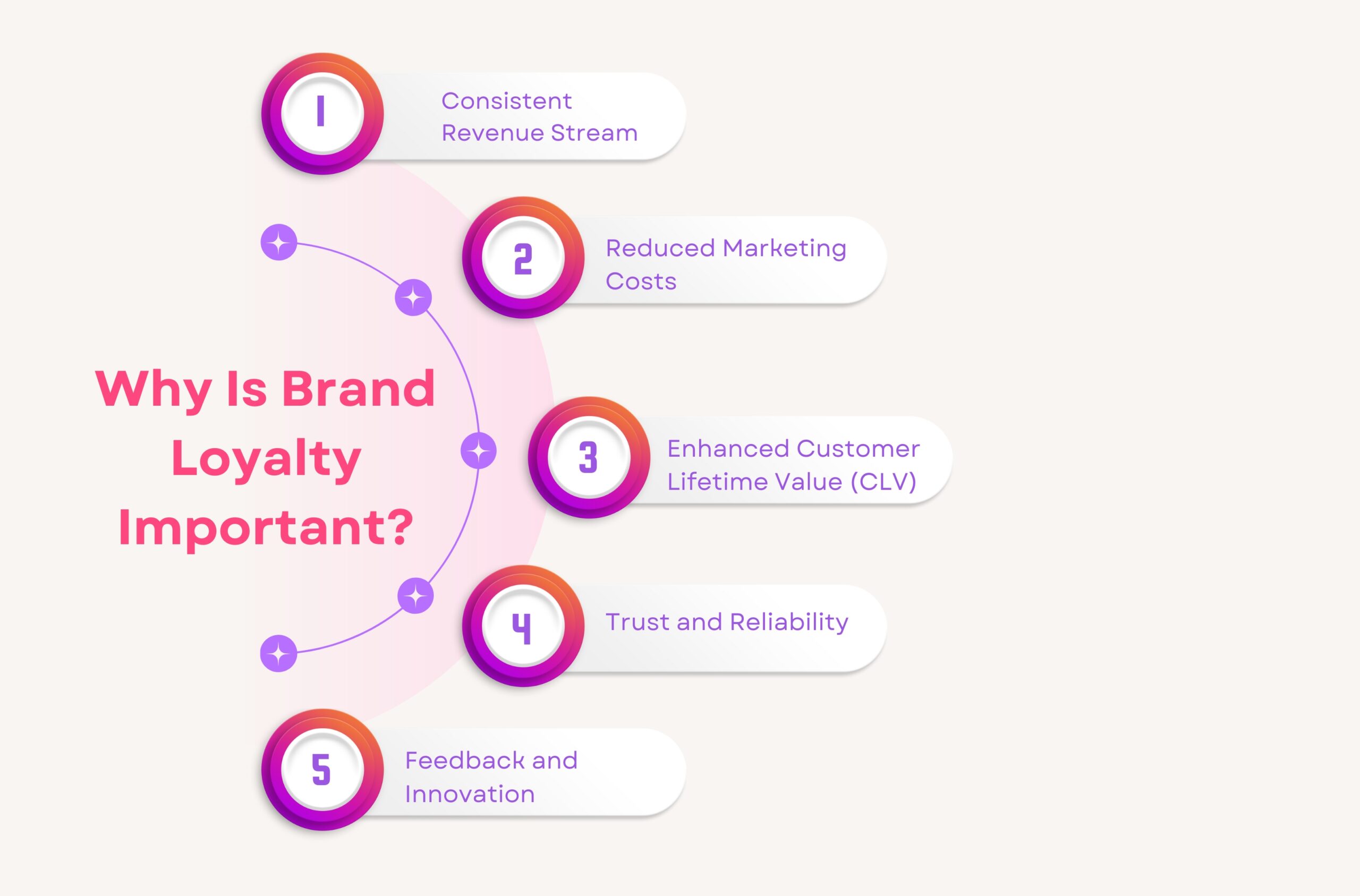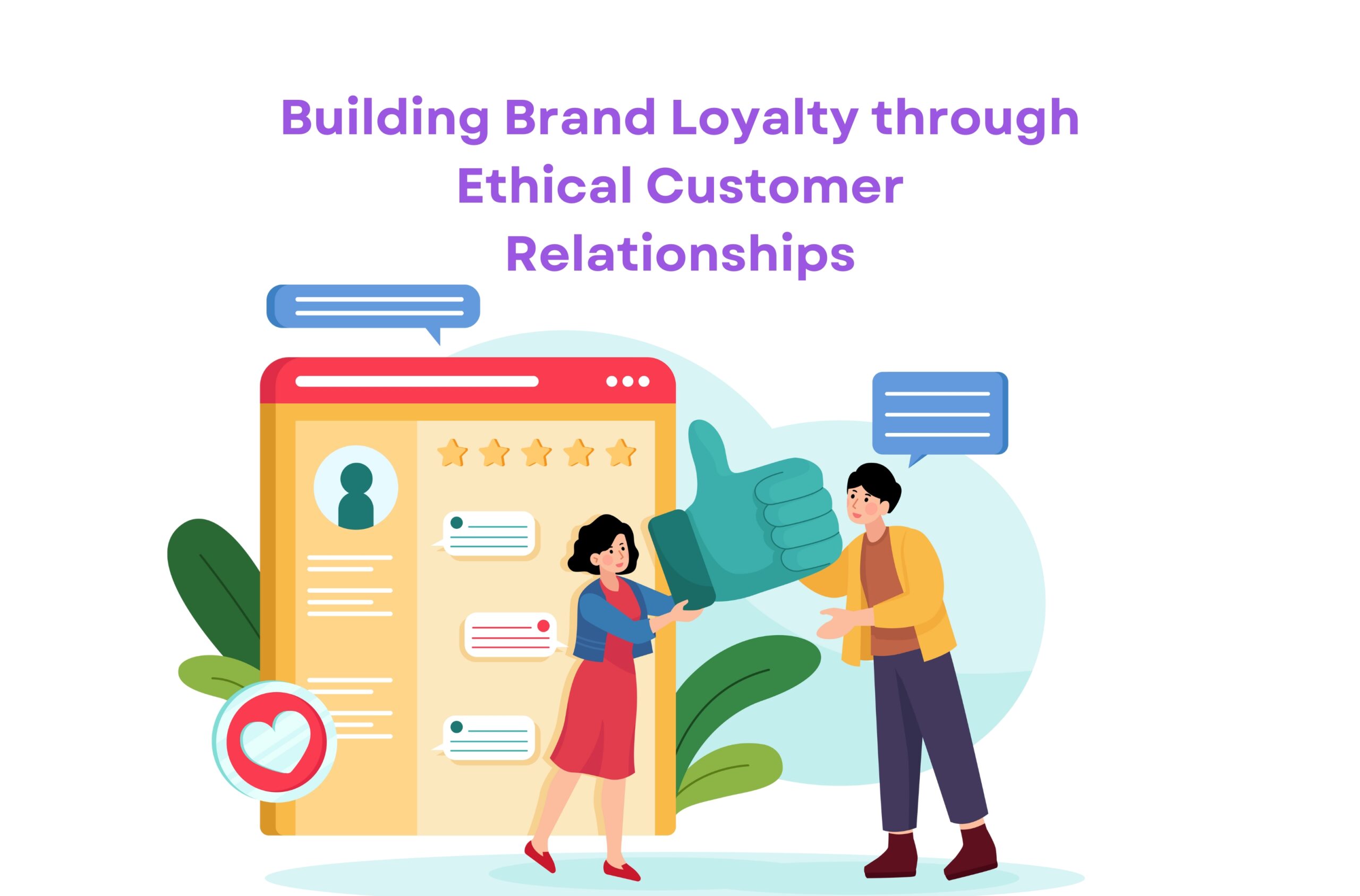Today, when consumers have excess options at their fingertips, building brand loyalty has become a topmost goal for companies. While various strategies can be employed to achieve this, one approach that has gained significant traction is fostering ethical customer relationships. This involves establishing connections with consumers based on transparency, trust, and shared values, ultimately leading to lasting brand loyalty.
Contents
What is Brand Loyalty?
Brand loyalty refers to the strong attachment and allegiance that customers develop toward a particular brand. It’s a measure of how consistently and repeatedly customers choose a specific brand’s products or services over those of competitors, often regardless of price or convenience. Brand-loyal customers tend to have a positive emotional connection to the brand and believe that it aligns with their values, preferences, and needs.
This loyalty goes beyond mere repeat purchases; it involves a deeper sense of trust, satisfaction, and affinity for the brand. Brand-loyal customers are more likely to recommend the brand to others, defend it against criticism, and remain loyal even when faced with competitive offerings.
Why Is Brand Loyalty Important?

Brand loyalty is important for businesses due to several reasons:
1. Consistent Revenue Stream:
Brand-loyal customers consistently choose a particular brand over competitors. This reliable customer base provides a steady stream of revenue, which is vital for a company’s financial stability and growth. It helps in forecasting sales and managing inventory effectively.
2. Reduced Marketing Costs:
Acquiring new customers is often more expensive than retaining existing ones. Brand loyalty minimizes the need for extensive marketing efforts, as loyal customers tend to need less persuasion and are more likely to make repeat purchases.
3. Enhanced Customer Lifetime Value (CLV):
Loyal Customers tend to stay with a brand for an extended period, increasing their lifetime values. They not only make repeat purchases but are also more likely to explore other products or services offered by the brand. This can significantly boost the overall CLV.
4. Trust and Reliability:
Brand loyalty signifies a strong bond of trust between the customer and the brand. Customers have confidence in the quality, consistency, and reliability of the brand’s products or services. This trust minimizes the perceived risk of trying out new products, leading to more sales.
5. Feedback and Innovation:
Loyal customers often provide valuable feedback, enabling the brand to improve its products or services based on customer preferences. This feedback loop aids in innovation and staying ahead of changing market trends.
6. Global Expansion:
For companies looking to expand globally, a strong brand loyalty customer base provides a solid foundation. International customers who are familiar with and trust the brand are more likely to embrace its offerings in new markets.
How to Build Brand Loyalty?
1. Know Your Audience
Understanding your target audience is the foundation of building brand loyalty. Conduct thorough market research to identify their needs, preferences, and pain points. Create customer personas to gain insights into their motivations and behaviors. The better you know your audience, the more effectively you can tailor your offerings to meet their expectations.
2. Consistency is Key
Consistency in quality and brand loyalty is very important. Ensure that your products or services consistently meet or exceed customer expectations. A reliable and positive experience with your brand at every touchpoint is essential to foster trust.
3. Exceptional Customer Service
Outstanding customer service is a cornerstone of brand loyalty. Respond promptly to inquiries, resolve issues efficiently, and go the extra mile to make customers feel valued. A positive service experience can turn a one-time buyer into a lifelong customer.
Every brand has a story, and sharing it can build a deep emotional connection with customers. Be transparent about your brand’s journey, values, and mission. A compelling narrative can help customers relate to your brand on a personal level.
5. Engage on Social Media:
Social media platforms provide a direct line of communication with your audience. Actively engage with customers by responding to comments and messages. Share user-generated content and create compelling, shareable content that aligns with your brand.
6. Collect and Act on Feedback
Actively seek feedback from customers and use it to make improvements. Show that you value their opinions and are committed to enhancing their experience. Feedback is invaluable for fine-tuning your offerings.
7. Transparency and Trust
Build trust by being transparent about your business practices, including pricing, sourcing, and ethical considerations. Trust is a fundamental element of brand loyalty, and customers appreciate honesty.
8. Long-Term Perspectives:
Building brand loyalty is a long-term endeavor. Be patient and committed to nurturing relationships over time. Remember that loyal customers become your brand advocates, helping you attract new customers and sustain business growth.
Conclusion
Brand loyalty requires a deep understanding of your audience, consistency in quality and branding, exceptional customer service, and a commitment to building lasting relationships. By implementing these strategies, you can cultivate brand loyalty that will contribute to your business’s success and sustainability. Ethical customer relationships offer a powerful strategy for creating lasting connections based on transparency, trust, and shared values.
Frequently Asked Questions (FAQs)
- What roles does customer feedback play in ethical relationship building?
Customer feedback is essential for improving products and services. Actively seeking and acting on customer satisfaction, which can build loyalty.
- What is ethical customer relationship building?
Ethical customer relationship building involves establishing and nurturing connections with customers based on honesty, transparency, and fairness. It focuses on building trust and loyalty through ethical business practices.
- How does transparency contribute to brand loyalty?
Transparency in pricing, policies, and business practices builds trust with customers. When they know what to expect, they are more likely to remain loyal to a brand.
- How can companies balance ethical practices with profitability?
Ethical practices can lead to long-term profitability by building trust and loyalty. While there may be short-term costs, the benefits of customer loyalty and a positive reputation can outweigh them over time.


